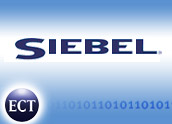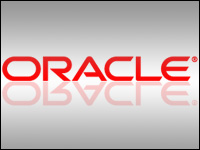
Siebel, it is clear, has been on a tear to close out what is likely to be its last quarter as an independent company as strongly as possible.
The CRM software vendor reported late Wednesday that its fourth-quarter total revenues were US$469 million, up 35 percent sequentially, and up 19 percent year over year. License revenues for the quarter were $215 million, up 92 percent sequentially, and up 34 percent year over year.
OnDemand total contract value for the fourth quarter of 2005 was $16 million, up 43 percent sequentially and 66 percent year over year. These results were in line with, or in some line items exceeded, the preliminary results Siebel presented to the market on Jan. 12.
Announcing the results, CEO George T. Shaheen credited “the market opportunity in customer facing solutions and business analytics, the improvements we have made to address this market, and customer confidence in the future of Siebel customer solutions and analytics following the proposed Oracle transaction.”
All indicators point to Oracle closing its acquisition of Siebel on Jan. 31.
Brief Window of Opportunity
There has been much speculation as to the impact Siebel’s acquisition will have on the industry. Siebel was arguably the market maker for enterprise CRM; its acquisition by Oracle after several poor quarters has spurred talk of the beginning of the end of stand-alone software.
That conclusion is too simplistic, though. There are many other influences on the market: the software-as-a-service trend, new best-of-breed vendors offering new functionality, new vendor business models and changing software purchase patterns.
The assumption that the market for enterprise CRM software is resurging, based on Siebel’s final smashing quarter, is also likely incorrect.
It is doubtful that most of the companies scrambling to close deals with Siebel are bothering themselves with such existential angst or long-term industry calculations.
Siebel’s pending acquisition has provided them with a small window of opportunity to press for the best deal possible instead of waiting to negotiate with Oracle, which has a reputation for maintaining a hard line on pricing.
The PeopleSoft Experience
A similar dynamic was evident prior to PeopleSoft’s acquisition by Oracle, Gartner research director Jane Disbrow told CRM Buyer.
“PeopleSoft signed a lot of deals right before the hostile takeover by Oracle closed,” she recalled. “Looking at the deals PeopleSoft did over the last six months — we saw more aggressive discounting [and] longer term caps on maintenance and support.”
PeopleSoft had a reputation for being tough on pricing, Disbrow said. “They, or their sales force, were more willing to get deals done.”
After the acquisition of PeopleSoft closed, it appeared as though the discounting of its product was not as high. “It is hard to say, because they price their products differently than other vendors,” Disbrow pointed out, “but on terms and conditions, I am seeing fewer concessions now.”












































